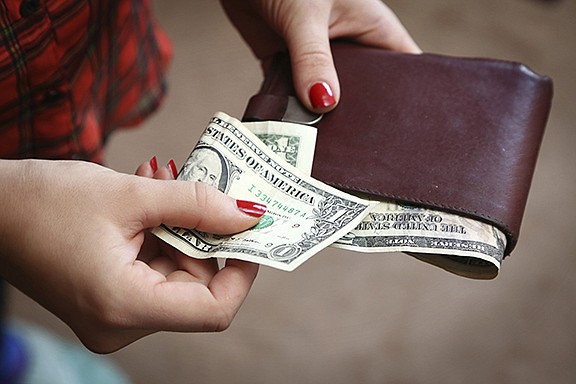Q: I know families should have at least three months of emergency funds. While we do save a bit each month, it's just not enough. Any simple advice for putting a little money aside? - Sam Saver
A: Dear Mr. Saver: Your last name says it all. And while you're wise to try to put away for a rainy day, facts prove that savings really should amount to six months of emergency funds. Yes, I see you shuddering in dismay; after all, that's a huge amount of money, even just tallying monthly basics like mortgage/rent and medical bills, so let's start slow and easy. My colleague Mary Hunt advises to save $1,000 at a time, which is less painless than one might think.
- Start with your paycheck. Regardless of whether you get paid weekly or monthly, save at least 5 percent off the top. (10 percent is preferable but even 1 percent is better than nothing.) Let's say an employee nets $1,000 every two weeks; whether $100 (10 percent) or $10 (1 percent), his savings begin to swiftly mount up. Again, it's not just the amount but the fact that you've begun your savings journey.
- Use a notebook to record monthly bills. That way you can see what's due, when and the amount paid. The first bill to be paid should be your savings account. Ten dollars each paycheck, for example, adds up to $50 in no time. Deposit that $50 into savings. Between this and your off-the-top paycheck stash, you're already seeing a pretty exciting amount.
- Skip non-essential purchases. Who doesn't love a double latte topped with whipped cream and chocolate sprinkles? However, at $4 a pop, think of what you can save doing without. If you are not using your landline, why have it? Save the rental on this and other non-necessities and deposit it into your special bank account.
- The variable expenses category is another cutting corner. Obviously, we must pay our mortgage and no one wants to read in the dark. Conversely, we certainly don't need every light turned on throughout the house nor should we dine on the choicest cuts of beef four times a week. Opt for the grocery store with the best sales, run the dishwasher and washing machine only at night to conserve energy. Then pocket the monthly difference or, actually, pocket only until you arrive at your local bank's branch to deposit the amount.
- Still smoking? When I was in the throes over 20 years ago, I'd always promise myself that when the price of a carton rose to $20, I'd quit. Thank goodness I did as I can't imagine where the money would come from to buy cigarettes today. In checking current prices, I almost fell out to learn the average prices in our area for single packs only: Alabama = $5.51; Georgia = $6.39; and good 'ole Rocky Top = $5.30. Multiply by a pack a day, the norm, and the number totals a staggering $169 a month just for Tennesseans! This monthly amount alone could stuff a new emergency fund.
- It's spring clean time. Go through closets, drawers, pantries and everything else that's normally closed up. What haven't you used in the past several months? Check dates on foodstuff and ditch any out of date. Empty clothes in closets; have a bag to give to charity, another for friends or consignment and another to dump. Hold a clothes swap with a few friends and, while having fun, get a "new" wardrobe. Sell items on eBay or other shopping sites. Make some fairly easy cash with a yard sale, whether clothing and shoes, linens, jewelry, kitchen items, tools - you name it.
- Take your lunch to work. Leftovers from last night's dinner and will save a bunch of bucks over a month's at-work lunches. Or, if lucky enough to be retired, don't eat out as much.
- Consider opening an online bank account. Not only are their fees less (or nonexistent), they often pay better interest rates. Check with local credit unions that offer free personal checking accounts.
- If willing and able, find a job. Whether part time or full time, extra earnings from a second job make a noticeable difference in emergency savings. The new career can be as simple as walking neighborhood dogs or selling handmade crafts at local festivals. If possible, incorporate the job with what you enjoy, and use your talents. I am a perfect example: Hubby crafts miniature furniture for collectors and I tutor and realize I still can make a positive difference.
Contact Ellen Phillips at consumerwatch@timesfreepress.com.

